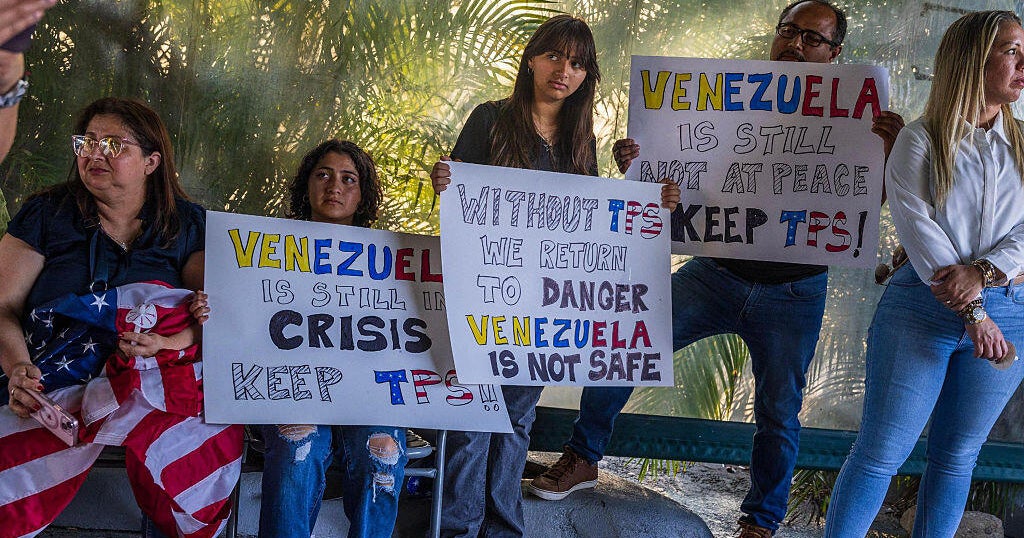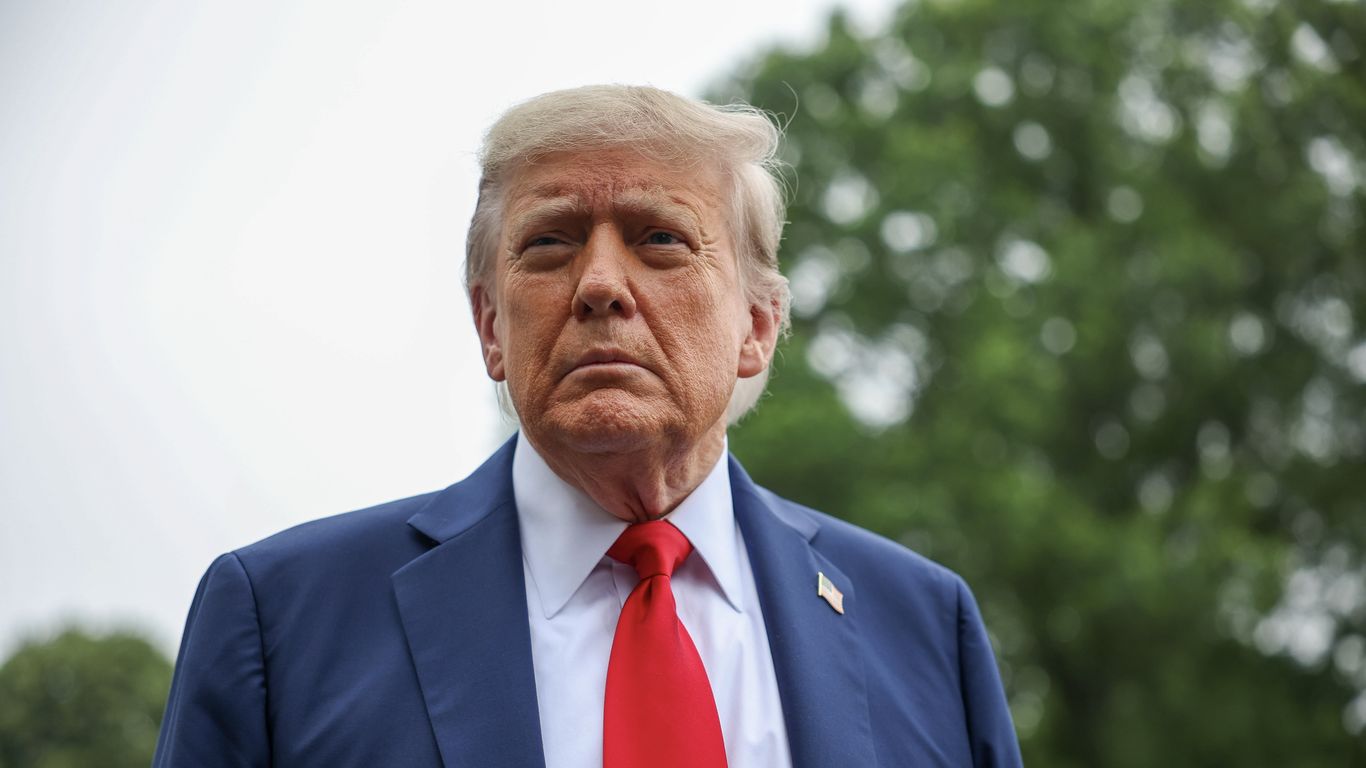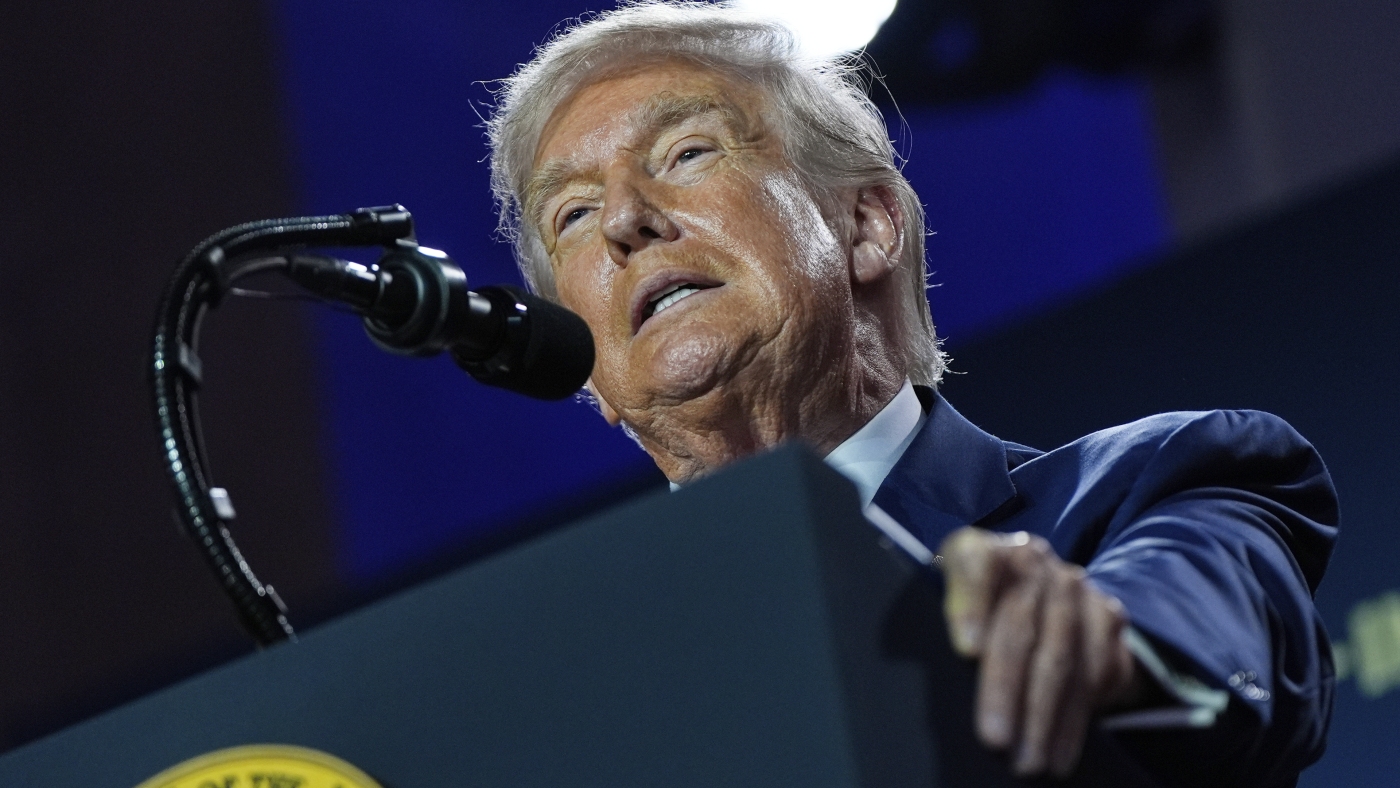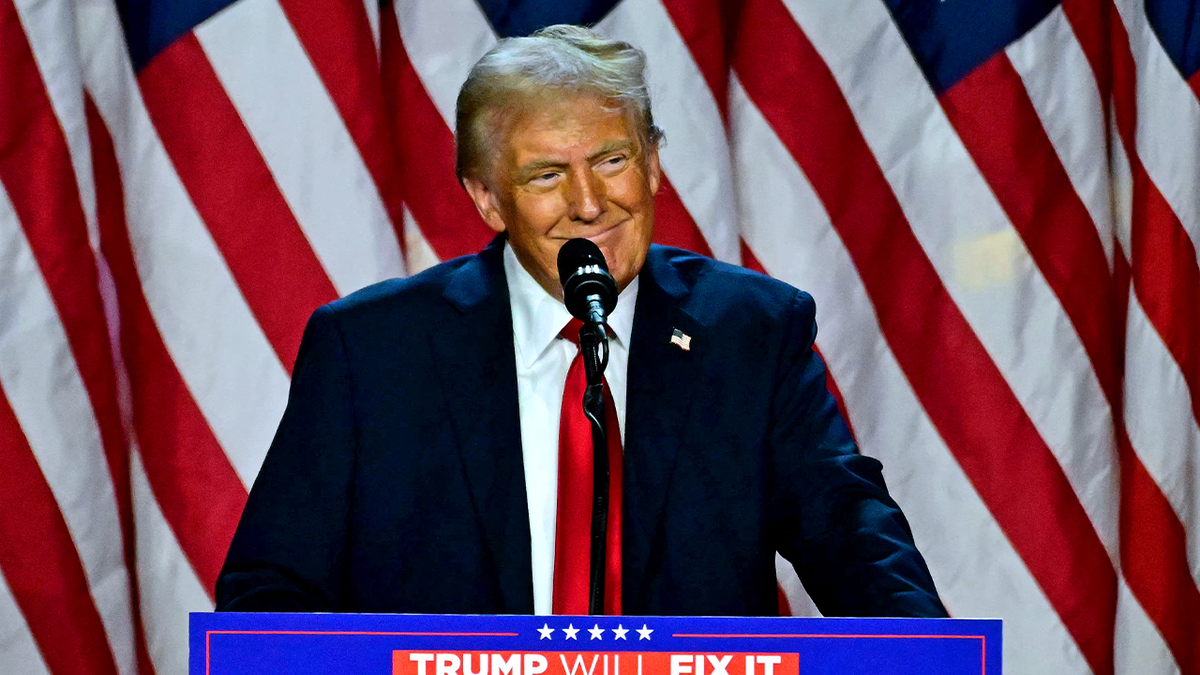Federal Court Blocks Trump Administration's Plan to End Protections for Venezuelans in the U.S.

Introduction
In a recent ruling, a federal appeals court has blocked the Trump administration's plans to end legal protections for 600,000 Venezuelans living in the United States. This decision comes as a major victory for the thousands of Venezuelans who have sought refuge in the U.S. due to the political and economic turmoil in their home country.
Key Details
The Temporary Protected Status (TPS) program, which has granted Venezuelans the right to live and work in the U.S., was set to expire on September 9, 2021. However, the court's decision has put a temporary hold on the administration's efforts to terminate the program, allowing Venezuelans to continue to live and work in the U.S. for the time being.
The ruling also highlights the important role that TPS plays in providing a lifeline for those fleeing dangerous and unstable conditions in their home country. It is estimated that Venezuela has seen a mass exodus of more than 5 million people in recent years due to political and economic crises.
Impact
The decision has brought a sense of relief and security to the 600,000 Venezuelans who have been living in fear of being forced to return to a country in turmoil. It also sends a powerful message to the Trump administration and their attempts to restrict legal immigration and terminate TPS programs for various countries.
The **Trump Administration** refers to the executive branch of the United States government under President Donald J. Trump, covering two non-consecutive periods: his first term from 2017 to 2021 and his second term beginning in 2025. As an organization, it is responsible for executing federal laws, shaping public policy, and managing national affairs during its tenure.
During the **first Trump Administration (2017–2021)**, the administration pursued a wide-ranging agenda focused on immigration reform, economic nationalism, deregulation, judiciary appointments, and foreign policy shifts. Key actions included building and expanding the U.S.-Mexico border wall—completing 458 miles by January 2021—and implementing strict immigration policies such as travel bans from several predominantly Muslim countries and rescinding the DAPA amnesty program[2]. The administration withdrew the U.S. from the Trans-Pacific Partnership trade deal, renegotiated NAFTA into the USMCA, and signed the "Buy American and Hire American" executive order to prioritize American workers[1][3][5].
Judicially, Trump appointed three Supreme Court justices—Neil Gorsuch, Brett Kavanaugh, and Amy Coney Barrett—significantly influencing the federal judiciary with over 200 judicial appointments[5]. The administration also focused on military expansion, combating ISIS, addressing the opioid crisis, and responding to the COVID-19 pandemic with vaccine development support[5].
Foreign policy was marked by controversial decisions including troop withdrawals from northern Syria, reinforced support for Saudi Arabia, and tensions with Iran and North Korea[4]. The administration faced two impeachments: first in 2019 over Ukraine dealings and again in 2021 following the January Capitol riot; Trump was acquitted by the Senate both times[4][5].
After losing the 2020 election, Trump returned for a **second term starting in 2025**, continuing his policy priorities with new regulatory changes and political appointments[6][8]. The Trump Administration Discover related stories and their connections to this article Explore connected events with detailed insights and relationships Key entities mentioned across connected events Discover patterns and trends across related stories Zohran Mamdani meets President Trump at the White House to discuss a $21B housing plan for Sunnyside Yard and bipartisan housing reform. CNN review finds dozens of FBI witness interviews missing from Epstein files, fueling questions about transparency. Casey Means, Trump's surgeon general pick, faces uphill confirmation amid vaccine questions and Kennedy health policy ties. U.S. Secretary of State Marco Rubio plans a March 2-3 visit to Israel as Iran tensions rise over nuclear talks and regional security. Trump administration unveils an aggressive crackdown on healthcare fraud, freezing Minnesota funds and expanding Medicare/Medicaid integrity nationwide.About the Organizations Mentioned
Trump Administration
🔗 Connected Events Overview
📊 Quick Insights
📅 Connected Events Timeline
👥 People Involved in Connected Events
Connected through:
🏢 Organizations & Products
🏢 Organizations
🛍️ Products
💡 Connected Events Insights
🔥 Trending Topics
Trending Blogs in Politics
Mamdani's Bold White House Pitch to Trump

Missing FBI Records Spark Epstein Files Controversy

Casey Means Faces Uphill Battle as Surgeon General Nominee in Vaccine Scrutiny
Rubio's High-Stakes Israel Visit Amid US-Iran Tensions

Federal Crackdown on Medicaid Fraud: Minnesota First, Nationwide Expansion










